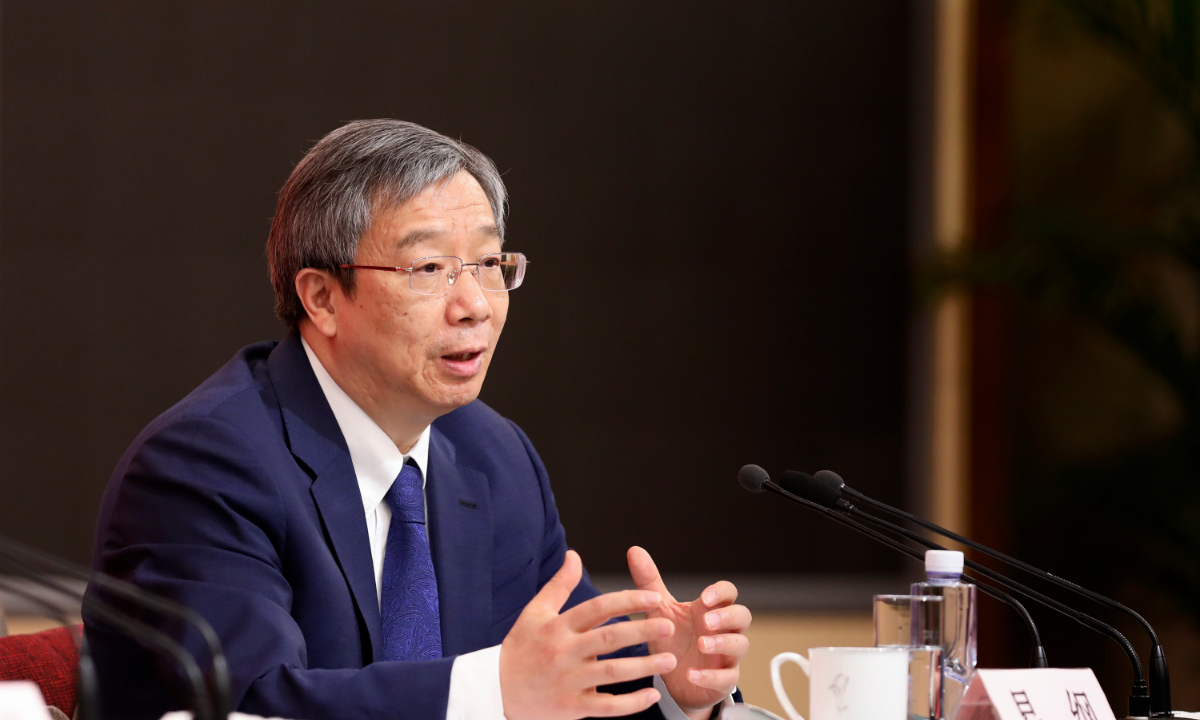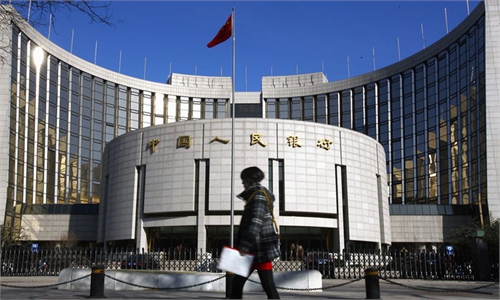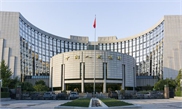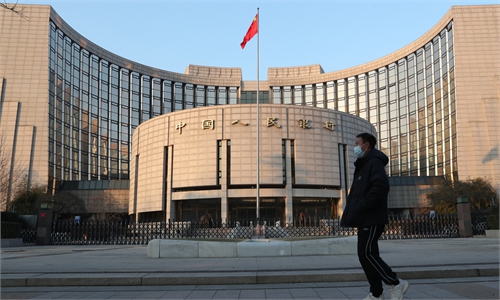China willing to work with all parties for common debt disposal framework: central bank governor

China's central bank governor Yi Gang Photo: CFP
China is willing to implement a debt disposal framework with other countries, China's central bank governor Yi Gang said during the World Bank and International Monetary Fund spring meetings in Washington.
Speaking in a meeting of G20 finance ministers and central bank governors during the spring meetings, Yi said China's economy is likely to grow around 5 percent this year, according to a statement released by the People's Bank of China on Friday.
Yi note that that China's economy is stabilizing and recovering, while inflation remains at a low level and positive developments have been observed in the real estate market.
Yi stressed that all parties should take concrete actions to ensure the smooth completion of IMF's 16th Quota Review and stressed that China is ready to work with all parties to implement the common framework for debt disposal.
At the spring meetings, some officials however tried to pressure China in easing developing countries' debt problems.
World Bank President David Malpass said that China needs to be open in restructuring discussions for developing countries in debt crises.
"China needs to be willing to sign off on the structure of the restructuring," he said in an interview on Bloomberg Television Thursday.
Such remarks have been rejected by Chinese officials.
Chinese foreign ministry spokesperson Wang Wenbin told a press conference in March that China was the largest contributor to the implementation of the G20's Debt Service Suspension Initiative (DSSI).
A study released by the China Africa Research Initiative at the Johns Hopkins University concluded that "China fulfilled its role fairly well as a responsible G20 stakeholder implementing the DSSI in the challenging circumstances of the COVID-19 pandemic."
Of the 46 countries that participated in the DSSI, Chinese creditors accounted for 30 percent of all claims, and contributed 63 percent of debt service suspensions, according to the study.
Western creditors, under the pretext of protecting their credit ratings, have consistently refused to participate in debt reduction efforts, Wang said.
Over 80 percent of the sovereign debt of 121 developing countries comes from multilateral financial institutions and commercial creditors, making them the main lenders who bring repayment pressures to developing countries, Wang said, citing World Bank statistics.
African governments owe three times more debt to Western banks, asset managers and oil traders than to China, and are charged double the interest, according to research released by British NGO Debt Justice in July 2022.
The US has raised interest rates at an unprecedented pace since last year, leading to a tightening international financial environment, and has made the debt problem of some countries even worse, Wang said, calling on Western commercial creditors and multilateral financial institutions, to make contributions to alleviating the debt pressure of developing countries amid the tightening international financial environment.
Global Times



